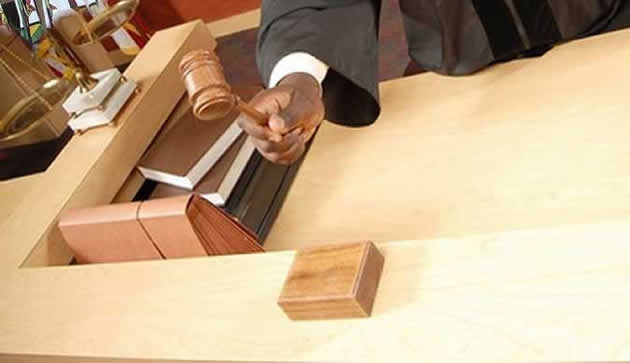Social media policy, decorum on public platforms crucial

 Christopher Farai Charamba Correspondent
Christopher Farai Charamba Correspondent
Recognised by Forbes as one of the Top 25 Social Media Marketers in the world, Mack Collier, a social media strategist, said; “There are three sides to every online reaction; yours, mine and the view of everyone watching us. Act carefully.”
Over the past couple of weeks, there has been much debate over the issue of social media spurred on primarily by the Twitter account of Higher and Tertiary Education, Science and Technology Development Minister Professor Jonathan Moyo.
Zanu-Pf spokesperson Cde Simon Khaya-Moyo said abuse of social media by party members was a cause for concern and would be up for discussion at the Politburo meeting this Wednesday.
Refuting this, however, Zanu-Pf Political Commissar Cde Saviour Kasukuwere said the party had no time to discuss social media issues and accused the media of trying to set an agenda for the Politburo meeting.
But in light of what has transpired over the past few weeks, where senior Government officials have been calling each other names and trading serious accusations in full view of the public, a discussion on social media at such a level could prove to be useful, particularly a discussion on social media etiquette and policy for public officials.
One should perhaps begin by defining the term social media. Some take it to mean only a Twitter page or Facebook profile, which do fall under the umbrella of social media but are a couple in a wide spectrum of options.
Researcher Michael Dewing defines the term social media as “the wide range of Internet-based and mobile services that allow users to participate in online exchanges, contribute user created content, or join in online communities.”
The variety of social media platforms include blogs, wiki, social bookmarking; such as StumbleUpon, social network sites such as Facebook and LinkedIn as well as status update services like the microblogging site Twitter.
In the information age, social media has positioned itself as a pivotal part of modern life. Kith and kin living over great distances have been able to stay in touch and citizens have been able to air their views and frustrations in the public domain and often directly to the officials they elected.
The world has certainly been made smaller by the Internet and social media as one of those functions has personalised the online space.
It is also likely that through social media, one can communicate directly with their local councillor, Member of Parliament, minister or even President.
Social media platforms have shortened the distance between ordinary citizens and public officials.
Aside from interacting with their constituents and citizens, public officials can also use the space to discuss their ideas and opinions as well as gauge the response of the public albeit a limited sample of the majority.
Around the world, various public officials from President Barack Obama to President Hage Geingob or South African Sports and Recreation Minister Fikile Mbalula all use social media platforms such as Twitter, Facebook and Instagram to disseminate information and interact with the public.
For part of this online presence, arguably a majority, these individuals have people manning their social media accounts, a designated PR individual who is responsible for uploading the official’s content. On occasion though, the principal will take control of their page and share their posts personally.
How a public figure acts and what they choose to say in the public space has always been very important and a certain level of decorum is expected from officials in the eye of the public.
The same goes for their online presence, what they say and how they say it should be met with the same level of demureness as with other public or media space.
Failure to do so puts themselves, their office and institution they represent into disrepute.
However, one is entitled to their rights, the Constitution of Zimbabwe in Article 61 enshrines the right to freedom of expression, which includes “freedom to seek, receive and communicate ideas and other information.”
An individual, including one who holds public office, is well within their rights to use Twitter or other social media platforms to communicate these ideas or information.
Freedom of expression is only restricted in that it excludes incitement to violence, advocacy of hatred or hate speech, malicious injury to a person’s reputation or dignity and malicious or unwarranted breach of a person’s right to privacy.
Article 86 of the Constitution deals with limitation to rights and freedoms stating that “fundamental rights and freedoms . . . may be limited only in terms of general application and to the extent that the limitation is fair, reasonable, necessary, and justifiable in a democratic society based on openness, justice, human dignity, equality and freedom.”
In wake of Prof Moyo’s tweets, one can only question whether he observed the correct politesse. Public officials are definitely held to a higher standard and as such should exercise the necessary decorum particularly in public spaces; social media being one of those public spaces.
While one may be tweeting in their own capacity and expressing personal views, a Cabinet minister on a social networking site like Twitter is also a representative of the office they hold and the Government of their State.
One might argue they are an ambassador of the State in that space.
As such, for a Cabinet minister to be airing dirty laundry of his colleagues in Cabinet on a global media platform is ill-mannered and damaging to the image of the State.
When one has grievances with their colleagues, whom they should hold as equals, there are better and mature ways to deal with these issues than to seek to embarrass them in the media space.
In 2013, a senior White House official, Jofi Joseph, director of nuclear non-proliferation on the White House National Security Council staff helping negotiate nuclear issues with Iran, was fired for tweets he posted on an anonymous account.
Joseph was unmasked as the vitriolic voice behind a Twitter account known for its insults of public figures at the White House and on Capitol Hill such as Hillary Clinton and US Ambassador to the United Nations Samantha Power.
As Mack Collier stated, one needs to act carefully online due to how the wider public will react; especially public officials in public spaces and on public platforms.
As such a social media policy would be an essential tool in guiding the manner in which public officials act and interact on public platforms.
Similar to an employee code of conduct, such policy would set the standards of decorum and the expectations of all public officials as representatives and ambassadors of the Government and State in their various capacities.
Article 106 (3) of the Constitution states that; “An Act of Parliament must prescribe a code of conduct for Vice-Presidents, Ministers and Deputy Ministers.”
Government last year said it was drafting a law that would create a code to regulate the professional conduct of Vice-Presidents, Cabinet ministers and their deputies as part of a reconfiguration of the statutes to align them with the Constitution.
One of the provisions of that law should deal with professional code of conduct in public spaces including social media platforms.
Left unregulated and if used inappropriately, social media can be a very damaging tool to an individual or organisation’s image and reputation as on such online platforms, one cannot predict or control the public’s reaction.









Comments